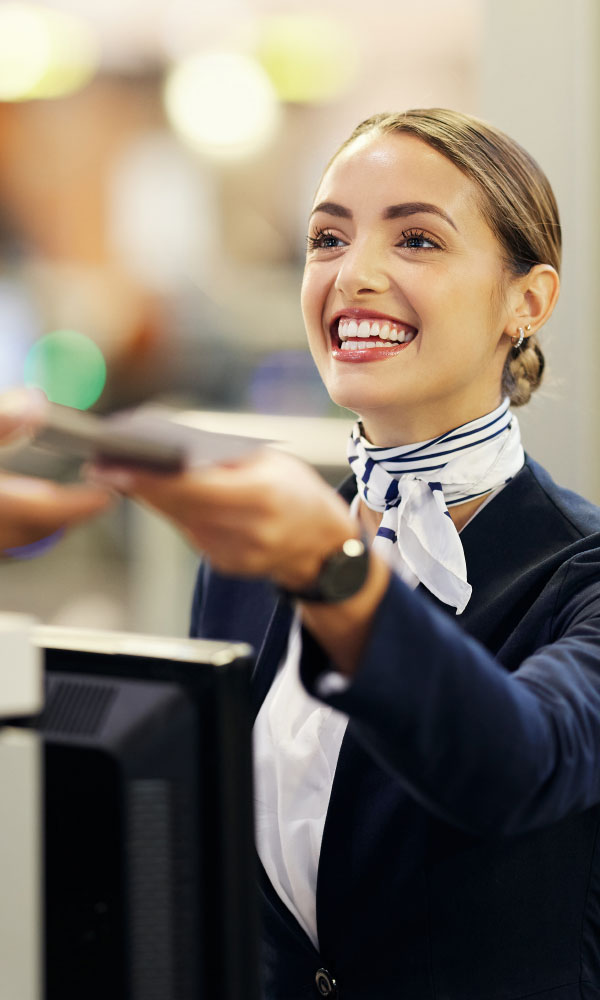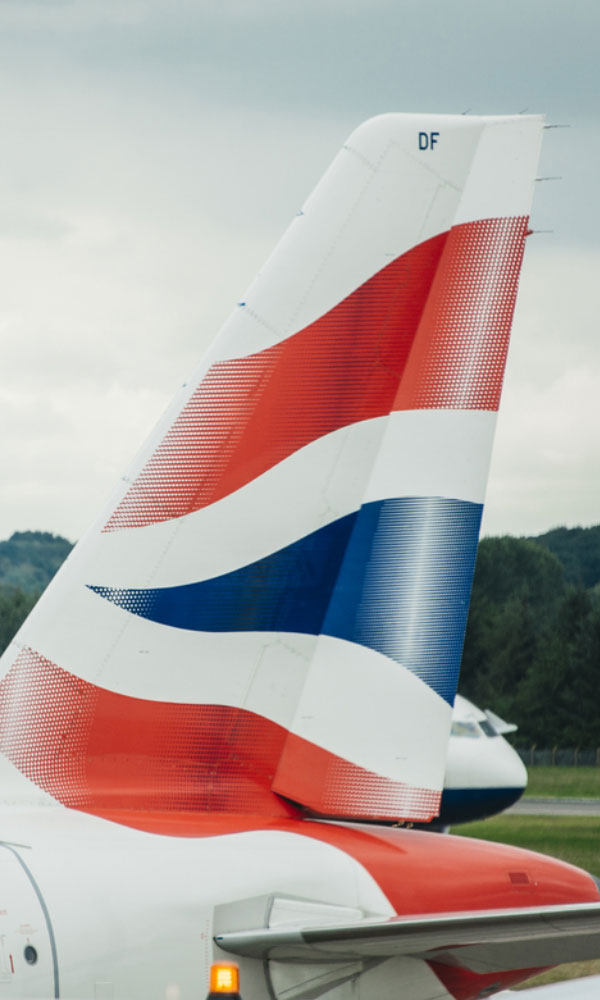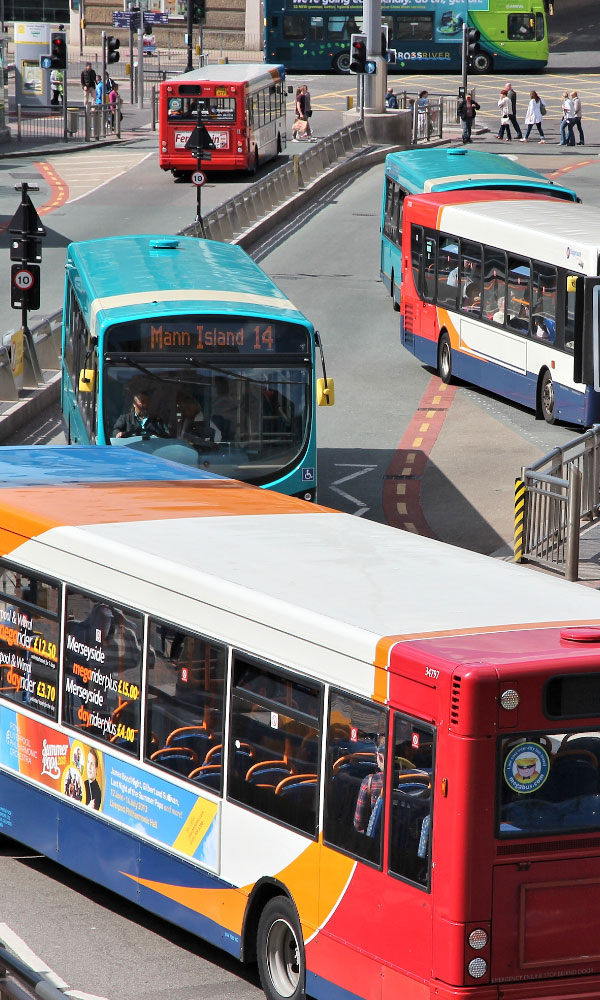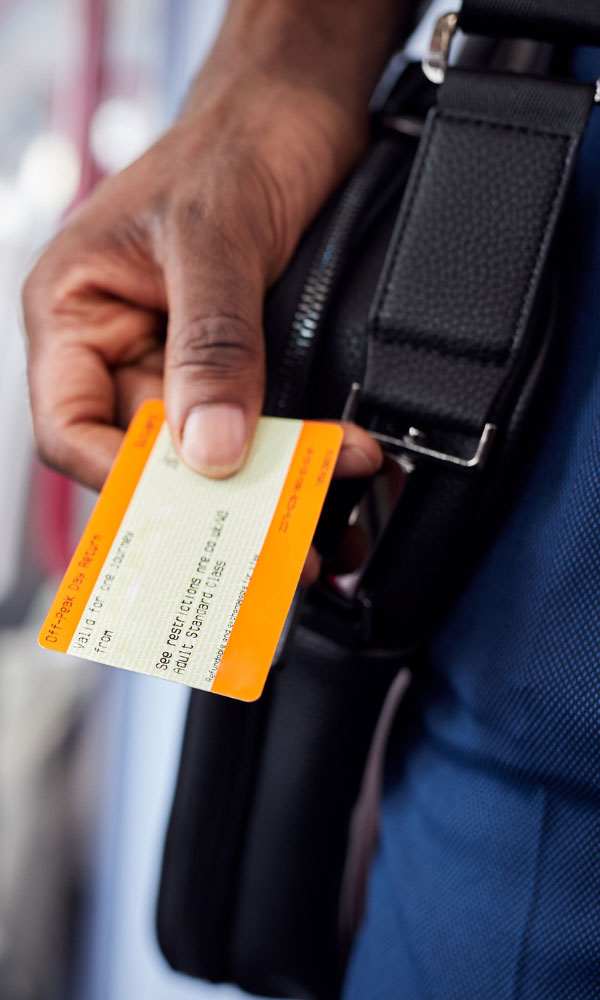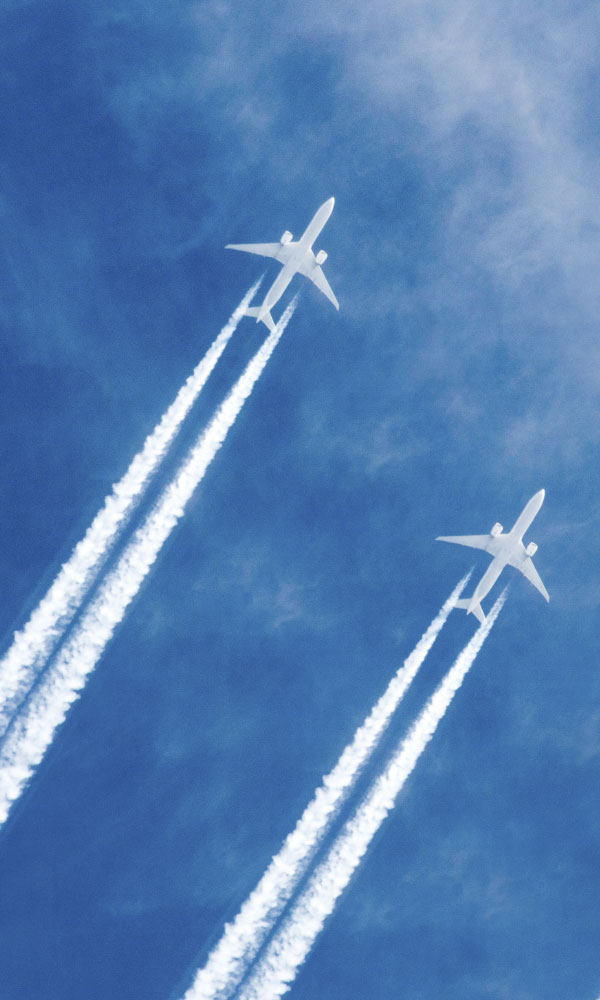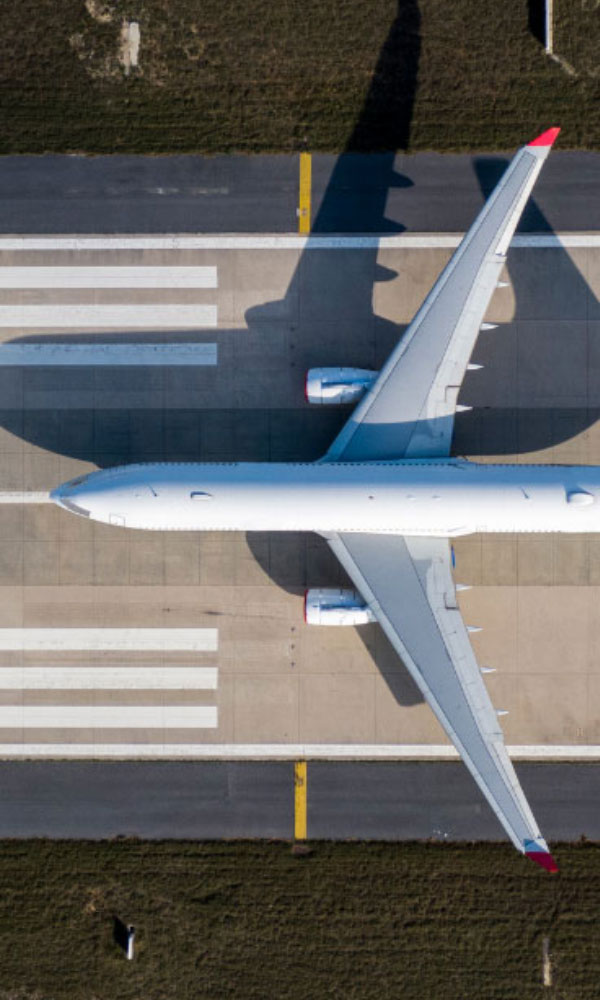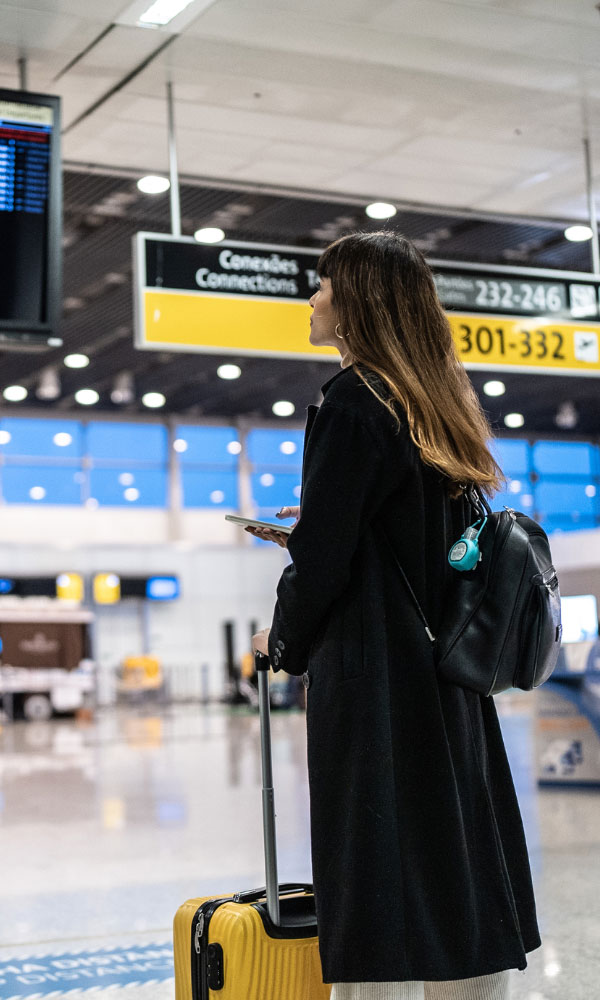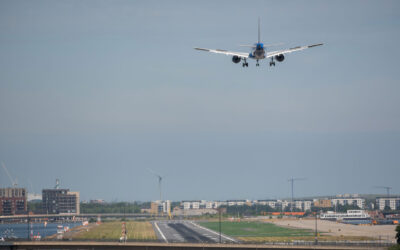11 Proposals to Guide the Future of Business Travel
our summary of the BTA's manifesto, "A Roadmap to Change"Business travel is a crucial driver of the economy. In the UK, it contributes £27.7 billion annually to the UK’s Gross Value Added (GVA) and supports over 280,000 jobs.
It is also an industry forever on the move. As technology develops, and business travel culture evolves, the way in which people get from A to B changes. As a global travel management company (TMC), Gray Dawes’ goal is to stay one step ahead of the business travel curve and ensure our travellers get the most out of their trip.
But keeping up can be difficult. There is no such thing as a one-size-fits-all business traveller – they are not just briefcase-toting men and women in suits, they can be musicians, journalists, athletes, or mechanics. Business trips can vary from a few hours to months at a time, and schedules are often packed with appointments or meetings. A delay is not only an inconvenience – it can be a significant economic cost.
Despite numerous international crises and post-pandemic adjustments, the demand for business trips remains robust. As we come towards the end of 2023, it’s time to start thinking about what the future might hold. In this article we take a deeper look at the Business Travel Association’s “BTA Manifesto: A Roadmap to Change” whitepaper and give an overview of the key recommendations from research carried out by the BTA and CBI Economics.
What is the BTA?
The Business Travel Association (BTA) is a representative association for the business travel community, dedicated to enhancing the visibility and significance of business travel within the broader economy. Indeed, their TMC members handle more than 90% of all managed travel bookings in the country.
Not only do they facilitate industry events, the BTA also commission surveys, research projects, and advocate for influential organisations, such as the UK Government and EU legislators, to inspire change in the business travel sector.
Our very own CEO Suzanne Horner is the current Chair of the BTA Executive Board which consists of representatives from 14 different TMCs.
Overview of Key Recommendations
After carrying out research into business travel trends and policies, the following recommendations were identified by the BTA and CBI Economics as key for the business travel industry and beyond.
🔗 3 – An industry standard for carbon offsetting across an entire trip needs to be established.
🔗 4 – A new UK Global Business Travel Fund should be set up to benefit the entire economy.
🔗 5 – An overarching UK-wide transport plan needs to be created to align all modes of transport.
🔗 6 – The rail ticketing system needs to be reformed to benefit the business traveller.
1.
International trade agreements should better reflect the needs of the modern business traveller
“International trade agreements should greater represent those travelling internationally for work, including work visas and permits.”
It is vital that the UK can attract global business and workers, and this will only be possible if greater emphasis is put on initiatives that simplify the process.
Work visas should be reconfigured to make it easier for overseas workers to travel to the UK as well as for UK business travellers to move more efficiently within Europe i.e. by renegotiating the 90/180-day rule or revising visa requirements for certain destinations.
Since the pandemic, there has been an increase in Digital Nomad Visas, allowing individuals to work remotely abroad. These visas present exciting opportunities for innovation, and the BTA propose international trade agreements should incorporate measures designed to facilitate the rise of the digital nomad.
2.
Workplaces should prioritise strategies that identify exciting talent in the business travel industry
“A long-term workforce strategy which identifies the skills needed for a strong travel sector, including greater recognition for the business travel sector and what is needed to help plug the skills gap.”
The pandemic’s impact on the business travel industry was profound, mirroring the challenges faced by many other sectors. In the throes of the pandemic, the travel industry had to downsize its workforce significantly. However, as business travel makes a comeback, there is a noticeable struggle to attract the talent necessary to meet the surging demand.
So, what’s the solution? The BTA advocate for the formulation of a robust, long-term workforce strategy that proactively identifies the future skills that will be indispensable for the economy. Moreover, more emphasis must be placed on the promotion of alternative entry pathways into the travel sector, such as the Level 3 Travel Consultant apprenticeship program. It is vital that these qualifications equip individuals with the skills required to keep pace with the rapid technological changes unfolding in the sector.
To address this pressing issue, the Business Travel Association (BTA) has taken proactive steps by establishing an initiative known as the Generation BTA Advisory Board. This initiative is geared towards inspiring and engaging the next wave of leaders within the business travel sector.
%
of business travellers have travelled internationally for a meeting
%
of businesses prefer in-person meetings compared to virtual meetings
approximate number of jobs supported by the business travel industry
The above statistics have been taken from research and sources provided by the BTA and CBI Economics
3.
An industry standard for carbon offsetting across an entire trip needs to be established
“An industry standard for carbon off-setting for the entire business travel journey should be established.”
To ensure that environmental commitments are not just empty words and to avoid “greenwashing,” the adoption of an industry-wide standard for carbon offsetting is imperative. This standard would level the playing field and ensure that all businesses adhere to the same environmental benchmarks.
At present, there is a notable absence of consensus regarding carbon offsetting schemes. This means that different airlines and operators operate under varying standards, creating a confusing landscape for consumers and potentially distorting fair competition within the industry.
The solution lies in collaboration between the government and the business travel sector. Together, they should develop a comprehensive carbon offsetting standard that extends across the entire transport industry, fostering consistency and environmental responsibility.
4.
A new UK Global Business Travel Fund should be set up to benefit the entire economy
“The creation of a new UK Global Business Travel fund needs to be set up to help business travellers continue being the
drivers of international trade.”
Ensuring that international travel remains flexible and efficient is of paramount importance for business travellers. These individuals are the catalysts of international trade, serving as the representatives of the UK on the global stage.
At present, SMEs have the opportunity to tap into the DIT Internationalisation Fund, which offers grants of between £1,000 to £9,000 to support business travel for purposes like market research or trade fairs. However, a cloud of uncertainty looms over the continuity of this fund since the UK’s departure from the European Union.
To address this issue, the BTA advocate for the uninterrupted access to the DIT fund or, as an alternative, the establishment of a UK Global Business Travel fund. Such a move would open the door to fresh business opportunities in pivotal industries across the world, ultimately fostering economic growth.
5.
An overarching UK-wide transport plan needs to be created to align all modes of transport
“A strategic transport plan which covers the entirety of the United Kingdom should be established to keep national businesses moving.”
In the current landscape of transport planning, the absence of a unified approach, where each region or local district crafts its own transport connectivity plans, has given rise to a lack of consistency in business travel ease.
When it comes to business travel, one often needs to seamlessly switch between multiple modes of transportation within a single trip. As such, the success of such a trip hinges on the alignment of these various transport options. This necessitates a strategic transport plan that takes into account the diverse needs of all public transport users.
The BTA propose creating a comprehensive, Government-led strategic transport plan that harmonises all modes of transportation, including cars, trains, buses, light rail, and aviation, while considering the specific requirements of different types of travellers. With such a plan in place, we could ensure that a business traveller in the East Midlands, for instance, can access the nearest airport sustainably and conveniently via train. Similarly, a business traveller arriving in Bristol or Manchester should find it easy to reach the city centre for a meeting.
6.
The rail ticketing system needs to be reformed to benefit the business traveller
“Rail ticketing reforms are needed to ensure the rail system works for the everyday worker travelling for business.”
The BTA advocates for essential rail ticketing reforms that align the booking process and travel costs with the specific requirements of business travellers. While rail travel continues to be a favoured mode of transportation, it hasn’t yet fully recovered to its pre-pandemic levels.
This decline is, in part, attributed to the high costs associated with rail travel and the complexity of the current ticketing system. As such, there is a pressing need to make the rail system more user-friendly for the everyday worker who relies on it for business trips.
Based on feedback gathered by the BTA from its members, it is evident that the current array of ticketing options is overly intricate. As a response, the BTA is calling for a simplified and streamlined rail ticketing system in which the definitions of peak and off-peak times are made consistent and flexible enough to adapt to ever-evolving demands.
The Crucial Role of a TMC
According to the BTA, TMCs like Gray Dawes manage the travel of 99% of FTSE 250 companies, SMEs and central government teams. As such, they are an important part of the travel eco-system and, by extension, the global economy. The responsibilities of a TMC is multitudinous, with their role extending to providing visibility of travel costs, ensuring travellers remain safe in volatile environments, and much more.

Pre-Trip
Risk management
Booking
Trip customisation

Trip
Live travel updates
24 hour support
Duty of care

Post-Trip
Personal and corporate care
Carbon reporting
ROI reporting
7.
Improved rail infrastructure needs to be prioritised to encourage more people out of their cars
“There should be a prioritisation of rail infrastructure and key business routes across the entirety of the UK.”
The BTA highlight the significance of investing in transportation infrastructure to establish a seamless, interconnected transport system that caters to every facet of the business travel journey.
This is especially important in rural areas heavily reliant on rail connections to access major cities. Investing in rail infrastructure is not just fundamental for sustainable business travel; it is a catalyst for reducing the number of cars on the road, shifting commuters to the railway tracks.
The BTA has also long championed the necessity of delivering HS2 and Northern Powerhouse Rail in their entirety. However, with the Government’s recent announcement that it won’t proceed with the full delivery of HS2, it’s now imperative that they ensure the HS2 line from Birmingham to Euston extends all the way to Euston, even if private funding proves elusive.
The urgency of investment into Network North is also paramount, and the BTA strongly advocate for the establishment of a comprehensive timeline for the delivery of the project.
8.
An SAF mandate should be established to offer benefits to those using SAF in greater quantities
“A watertight Sustainable Aviation Fuel (SAF) mandate, alongside grants for developers to boost production and offer subsidies to those purchasing and using SAF in greater quantities, needs to be established.”
According to the BTA, collaboration between the business travel industry and governments worldwide is absolutely imperative to make SAF the preferred choice over fossil fuels. A forward-looking transport strategy should prioritise the sustainability of various transportation modes and explore avenues for enhancing them through strategic investments.
The BTA advocate for governmental support in the form of financial incentives, including tax breaks, subsidies, or grants, to encourage airlines and the broader industry to invest in and adopt SAF. This approach ensures that SAF becomes an economically viable and greener alternative for airlines without adversely impacting travellers.
This strategic approach aims to prevent any additional costs from trickling down to consumers and paves the way for a more sustainable and environmentally responsible aviation industry.
9.
Air Passenger Duty (APD) should be frozen or cut, and the proceeds used to support green projects
“The UK’s APD is the highest European aviation tax for short and long haul flights and needs to be revised.”
Being an island nation, the UK heavily relies on air travel to uphold its global connectivity, with more than 70% of visits to the UK occurring by air. Unfortunately, the UK’s Air Passenger Duty (APD) ranks as the highest aviation tax in Europe for both short- and long-haul flights.
Research conducted by PwC has revealed that a substantial reduction or even abolition of APD could lead to the creation of tens of thousands of new jobs, and the increased revenues generated by other taxes could offset this change, making it a self-sustaining initiative.
In light of these concerns, the BTA strongly urge the Government to reassess APD levels and, at the very least, commit to freezing it. Additionally, they propose that travel in the popular premium economy class, often favoured by business travellers, should not be taxed within the same bracket as first and business class travel.
Additionally, in alignment with a commitment to sustainability, the BTA propose that at least 75% of APD revenue generated from ultra-long-haul flights be allocated to fund green projects, including the development of SAF. This will aid in advancing the cause of cleaner, more environmentally responsible air travel.
10.
There needs to be increased investment in regional airports to help growth across the country
“Investment in the UK’s regional airports will to help business grow throughout the country.”
Regional airports play a pivotal role in linking cities and towns across the UK, offering crucial transportation options for business travellers, particularly those residing in regions far from major international airports like Heathrow or Gatwick. Investing in regional airports not only minimises the necessity for long-distance journeys to reach major hubs but also grants business travellers thec onvenience of air travel, regardless of their place of residence.
The BTA believe a thorough review of public service obligations (PSOs) should be taken to guarantee connectivity between all key regions in the UK, thereby fostering economic stability and growth in regional economies.
Additionally, there is a pressing need to establish seamless connections between regional airports and local rail and road networks, with better synergy ensuring a smooth and hassle-free travel experience for business travellers.
11.
More investment is needed to tackle challenges facing EVs including charging point accessibility
“Challenges faced by Electric vehicles not only includes the accessibility of EV charging points, but also the speed and simplicity of charging an EV.”
While public transportation is undoubtedly crucial for fostering economic growth, it’s vital to recognise that many workers, especially those residing in rural areas, heavily rely on private cars as their primary means of transportation for work. Consequently, in shaping any future transport policy, we must not overlook the significance of car travel.
The transition to electric vehicles (EVs) is a positive step forward, but there’s a pressing need for substantial investment in charging infrastructure. This becomes particularly critical for individuals using EVs for work-related travel, as business travellers cannot afford to waste time waiting for available charging points or for their vehicles to recharge. Enhanced investment in EV infrastructure will empower workers to make more sustainable choices.
The BTA believe that he Government’s existing target of reaching 300,000 charging points by 2030 is admirable. However, it’s crucial to have a clearer understanding of the geographical distribution of these charging points, aligning them with broader transportation plans, such as Network North.
Related Articles
Inside the Business Travel Show Europe 2025
Held in the huge conference halls of ExCeL London, the Business Travel Show Europe 2025 was a sparkling celebration of the innovation within the industry, and we at Gray Dawes were proud to be at the beating heart of it all. In this article, we take you behind the scenes of the show, reflect on a few eye-opening days, and share how Gray Dawes continues to lead the way with our Always On approach to delivering High Touch, High Tech, and High Content service at every stage of a business trip.
Onwards and Upwards with ITA Airways
ITA Airways, Italy’s flagship carrier, has expanded significantly since we last spoke with them. They now operate as far east as Tokyo and as far west as San Francisco. In this article, we chat to ITA Airways about their integration with Lufthansa Group, their commitment to sustainable travel, their Volare points program, and much more.
8 Top Hacks for Travel Managers
In today’s fast-paced corporate world, travel managers play a crucial role in ensuring seamless, cold-effective, and stress-free journeys. Balancing budgets, schedules, and traveller satisfaction is no easy task; however, with the correct strategies, it becomes a lot simpler. Whether you’re looking to streamline bookings, reduce expenses, or enhance traveller experience, these top 10 travel hacks are designed specifically for travel managers ready to take their game to the next level.
CALL US
08448 553700
+44 (0) 1206 716111 (if outside the UK)
EMAIL US
ALWAYS HERE
Mon – Sun, 24 hours a day
LET’S TALK
Fill in the form below and we’ll get back to you as soon as we can.


